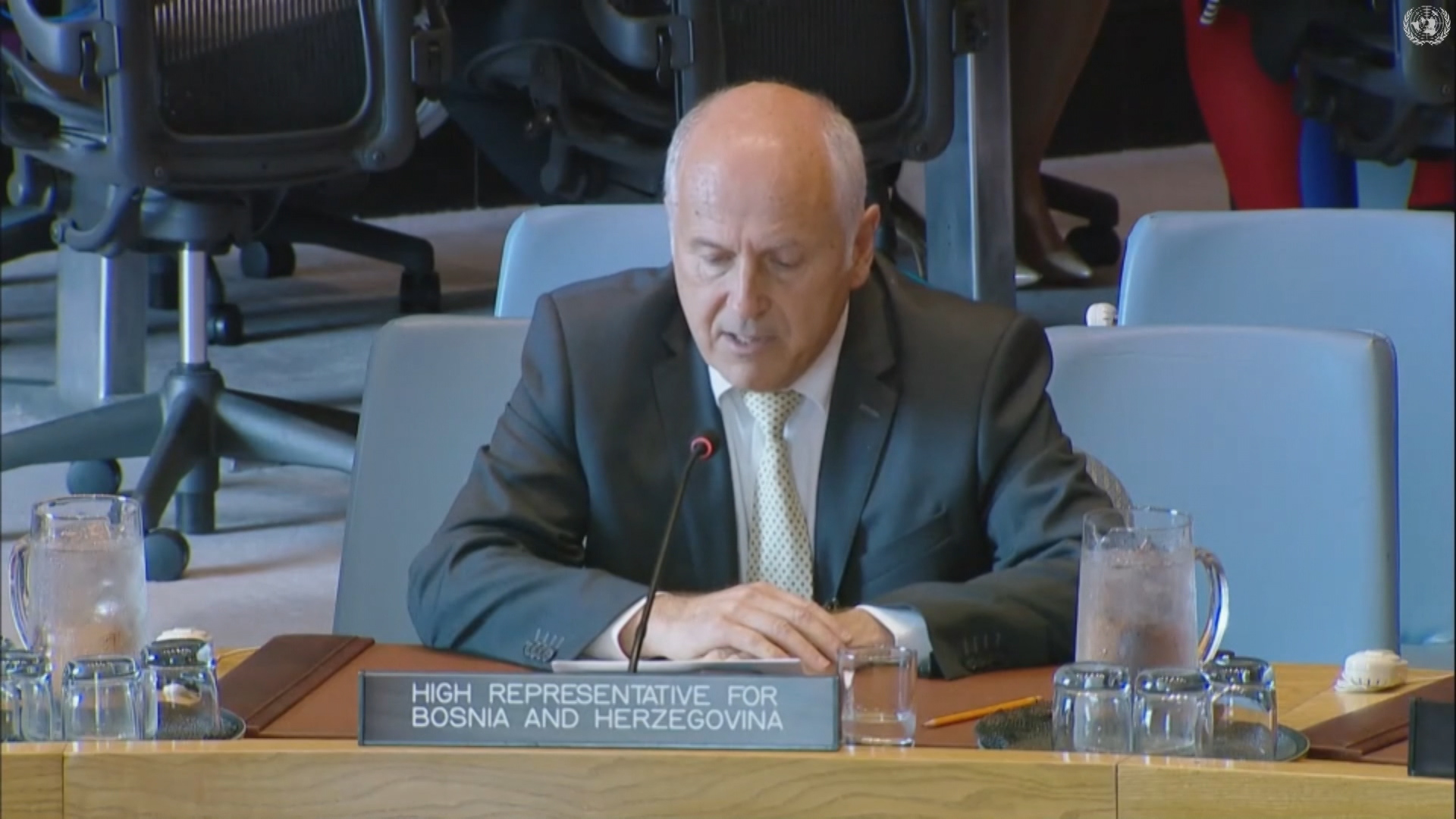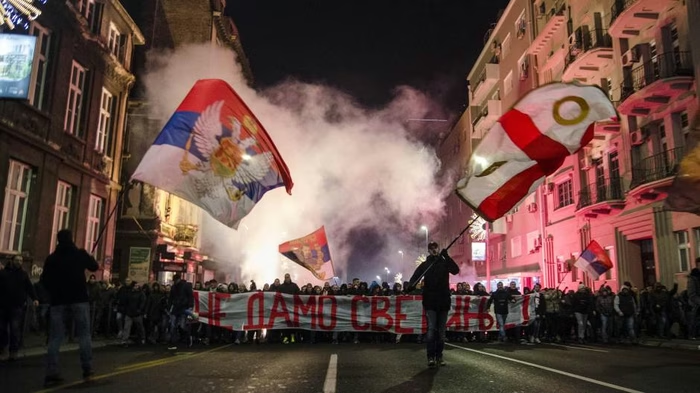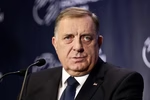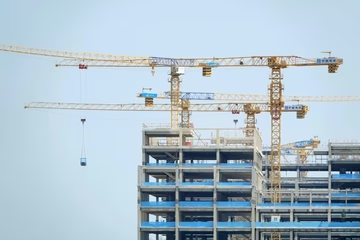
The mention of peaceful dissolution while calling for the withdrawal of military presence in the country can only be interpreted as a threat to sovereignty and territorial integrity of Bosnia and Herzegovina, international envoy Valentin Inzko warned in his latest report on the situation in BiH which will be presented later on Tuesday to the UN Security Council.
The 59th report covers the period from October 16, 2020 through April 15, 2021, and it among other things says that the pandemic continues to reveal “serious dysfunctionality in the country,” which in return has caused frustration among citizens and protests calling for action or resignation of those responsible.
Inzko, who serves as the High Representative in BiH and is in charge of overseeing the peace implementation in the country, warns in his report that besides the recent challenges by Bosnia's Serb-majority region Republika Srpska to the fundamentals of the General Framework Agreement for Peace (GFPA), its entity parliament has recently called for an end to the military component of the international mission in BiH and for a discussion on the future of the country i.e. its peaceful dissolution as an option.
“The mention of “peaceful dissolution” while also calling for the withdrawal of the international military presence in the country can only be interpreted as a threat to the sovereignty and territorial integrity of BiH, and thus to the peace and stability of the country, which is assuredly how a great many of its citizens understood it. I must reiterate that the Peace Implementation Council Steering Board (PIC SB) has consistently reaffirmed its unequivocal commitment to the territorial integrity and fundamental structure of BiH as a single, sovereign state comprising two entities. There will be no redrawing of the map of BiH,” the report said.
On the other hand, Bosnia's other semi-autonomous region, Bosniak-Croat shared Federation, remains barely functional, according to Inzko.
“A new Federation Government is still not appointed, two and half years since the October 2018 General Elections, which is inconceivable in a democratic state based on the rule of law, under free and fair elections,” he said.
As for the central government at the state level, there is a complete stagnation, demonstrated by “poor legislative output of the BiH Council of Ministers and the BiH Parliamentary Assembly,” the report emphasises, noting that apart from budget acts there has been only one new law adopted.
The High Representative, however, mentions some positive trends that marked the period covered by this report, which includes the organising of two consecutive elections, the 2020 local election and separately held vote in the City of Mostar.
“The work of the BiH Central Election Commission (CEC) in successfully organizing two consecutive elections during a pandemic, and in the face of continued political attacks against the institution, taking appropriate safety measures into account and organizing mobile polling teams for quarantined voters, while also reacting promptly to reports of fraud and malfeasance, is commendable, said Inzko.
He said 2021 can be a year of the opportunity for electoral reform, which would result in the implementation of technical recommendations of foreign institutions as well as the implementation of the European Court of Human Rights decisions in the 'Sejdic-Finci' and other cases.
Kakvo je tvoje mišljenje o ovome?
Učestvuj u diskusiji ili pročitaj komentare





 Srbija
Srbija
 Hrvatska
Hrvatska
 Slovenija
Slovenija



























































